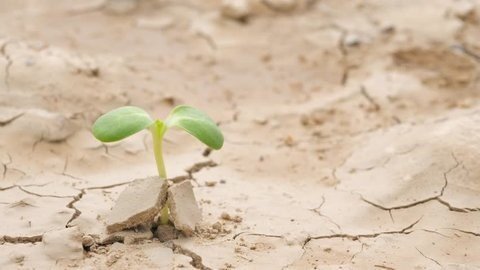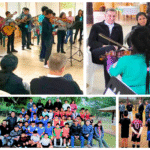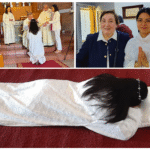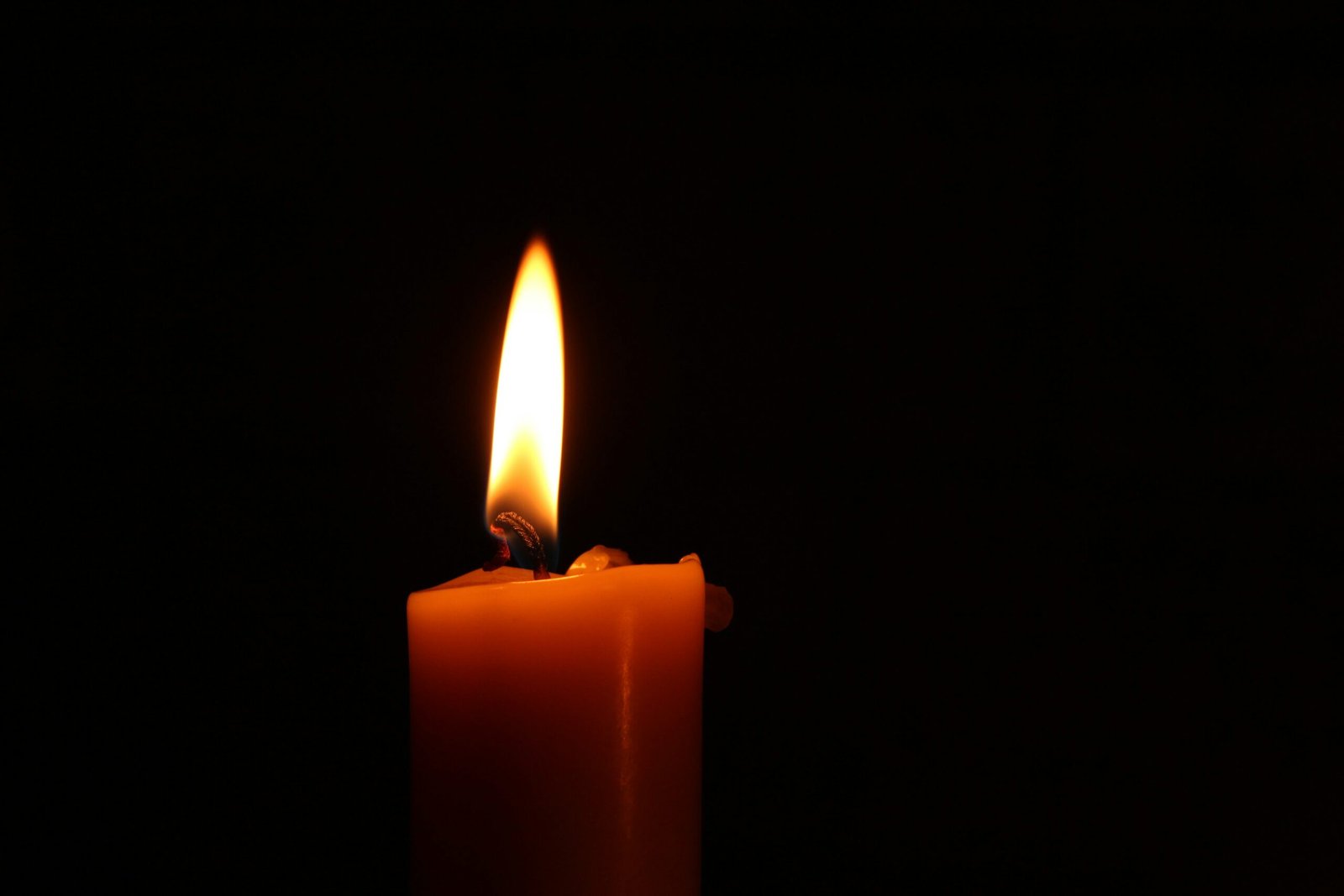
by f. Luis CASASUS, General Superior of the men’s branch of the Idente Missionaries.
Madrid, June 13, 2021. | XI Sunday in Ordinary Time
Book of Ezekiel 17: 22-24; 2 Corinthians 5: 6-10; Saint Mark 4: 26-34.
The Scottish empiricist philosopher David Hume (1711-1776) said that of all sciences there is none where first appearances are more deceitful than in politics. Surely, many psychologists today would question this statement. In our spiritual life, this is even more true and important. I think it is good to hear it in the words of St. Francis de Sales:
We can never know what perfection we have reached for we are like those who are at sea: they do not know whether they are making progress or not but the pilot knows, knowing the course. So we cannot estimate our own advancement, though we may that of others, for we dare not assure ourselves when we have done a good action that we have done it perfectly, humility forbids us to do so. Nay, even were we able to judge the virtues, we must never determine in our minds that one person is better than another, because appearances are deceitful, and those who seem very virtuous outwardly and in the eyes of creatures, may be less so in the sight of God than others who appear much more perfect (Spiritual Entertainments).
And, if we go a step further, we must recognize that the kingdom of heaven itself, its dynamics and its life, are quite imperceptible to our eyes, as today’s Gospel suggests. This explains the importance of having a spiritual direction and a community where we can contrast our spiritual experience with that of other brothers/sisters.
* A first consequence is that we have no reason to be discouraged when we have the sensation of failure in our ascetic struggle.
This can occur in several ways. For example, when we have the impression that a passion, a vice, a fault is always repeated in our life, creating the idea that neither good advice nor our desire to be faithful is sufficient. Then, we feel ourselves contaminated and, therefore, incapable of helping others to follow a path of perfection. At other times, a spiritual catastrophe happens in our lives. A fault that I cannot explain how it came about, whose possible consequences on both myself and others shock me.
Let us remember St. Paul’s disconsolation; after complaining to the Lord about his famous thorn in the flesh, he reports the Lord’s reply: My grace is sufficient for you, for power is made perfect in weakness. The thorn in our life is any persistent bane that frustrates us, infuriates us, or makes us feel unworthy or ashamed… and over which we remain powerless. Simone Weil writes: Affliction hardens and despairs, because it imprints the depths of the soul — like a branding iron — with contempt, disgust, and even repulsion of oneself. In these feelings there is a strong component of pride. A good antidote is to remember that the same thing has happened to many souls, to many saints.
So then why does not the Lord accede to Paul’s three-time plea that this leave him? A different question provides perspective: What would I be like without the afflictions I bear? I would be unbearable.
Saint Thomas Aquinas interprets this experience of Paul’s to be a remedy against pride — an inordinate desire for one’s own excellence that can fall into other vices, such as ambition, avarice, vainglory, and the like. Pride separates us from God, and is the root of all vices and the worst of them. If you are reading this simple Reflection, it is a little proof that God has not forsaken you….He makes you feel thirsty.
* A second consequence of these parables is that we cannot have a complete perspective of the fruits of our good deeds.
In the parable of the mustard seed, the allusion to the “birds of the sky” is not accidental. Jesus was not giving a Ecclesiology lesson in the lake, but speaking of the effects of the kingdom of heaven in each one of us. As Pope Benedict XVI said. our soul is the essential location of the Kingdom of God. That is why Jesus refers to a well-known image from the Old Testament, where, for example, Pharaoh is compared to a majestic cedar tree, which shelters all the birds: All the birds of the sky nested in its boughs, all the animals of the wild gave birth under its branches; all the great nations lived in its shade (Ez 31: 6).
This illuminates the true meaning of the fruits of the kingdom of heaven, which are not measured in number of followers, miles traveled to preach, number of pages written, tireless activity or feverish work. It is about developing new branches in my heart, like open arms, so that souls feel welcomed and accompanied. That is the ecstatic behavior, the “living away from me”, so that my neighbor may feel welcome and accompanied. so that others may find enough rest and peace to allow them to discover God in their lives.
Moreover, the birds are very fond of the mustard black seed and we can always see a cloud of birds over a mustard plant. And this is what St. Augustine preached to the North African Church: in sharing the body of Christ we become the body of Christ, true nourishment for the world…and this is more than a beautiful metaphor!
Jesus describes the fully grown mustard plant as the greatest of all shrubs. It can grow dense, but it is hardly magnificent. Jesus must be grinning as he speaks. He is not aiming to impart insights about the relative worth of shrubberies but to shock people into a new way of perceiving greatness. He could have likened God’s reign to the cedars of Lebanon if he wanted to describe an in-breaking state of affairs that would cause people to be impressed. Instead he describes something more ordinary, and yet also something more able to show up. Some of the listeners might deem this plant to be too much of a good thing. But what about those who, like the birds, need a home where they can be safe? They will be happy.
Pope Francis stated it this way in Fratelli Tutti:
All this can help us realize that what is important is not constantly achieving great results, since these are not always possible. In political activity, we should remember that, “appearances notwithstanding, every person is immensely holy and deserves our love. Consequently, if I can help at least one person to have a better life, that already justifies the offering of my life. It is a wonderful thing to be God’s faithful people. We achieve fulfilment when we break down walls and our hearts are filled with faces and names!”
In Evangelii Gaudium we are reminded that the great goals of our dreams and plans may only be achieved in part. Yet beyond this, those who love may be sure that none of our acts of love will be lost, nor any of our acts of sincere concern for others. No single act of love for God will be lost, no generous effort is meaningless, no painful endurance is wasted. “All of these encircle our world like a vital force”.
Today’s First Reading is also an invitation to trust in God, always, but especially when our expectations seem vain and hopes dashed. He is the one who usually makes the lowly tree tall and the dry tree to bloom.
* Third, we can go further and remember the times when God seems to ignore our best efforts to help others. This can be more painful than contemplating my own spiritual misery or the evil of the world “in general”.
At least two questions arise: Why doesn’t God make himself more visible, and how can we see his action as described in today’s first parable?
If anyone could give a complete answer to these doubts… it would be a fourth person of the Holy Trinity, which is highly improbable. But it is possible to understand at least one reason why Providence does not submit to our “cause-effect” way of thinking. In this way it protects us from the empire of the instinct for happiness which, let us remember, not only threatens to dominate the most impious and selfish, but also souls dedicated to the things of God.
God changes our hearts. And those changes, even if we do not respect them, even if we mix them with our ambitions and passions, cannot be destroyed. They will bear their fruit by touching others, by infecting our fellow men and, above all, by making our repentance possible. Right now, after a time, or a second before death.
Generosity sooner or later, generates a gratitude that is a springboard for new initiatives. Mercy, now or tomorrow, begets mercy, (Blessed are the merciful, for they will be shown mercy) and is contagious.
On the occasion of a natural disaster in the Philippines, a touching picture became famous. In an evacuation center a little boy was carrying a smaller boy with great difficulty. The two boys are not brothers. The older boy was protecting the younger boy for fear that he might get lost in the sea of thousands of people falling in line for relief goods. The younger boy must have been separated from his parents and family or, perhaps, he is the only surviving member of his family now. The older boy needed relief goods, but he could not just think of himself. He was also thinking of the welfare of the younger boy, perhaps even above his own needs. Wee can dare to say the God’s goodness was reflected by the goodness of this boy in solidary with another suffering boy.
So, when we feel that God seems not to be present, let us not be surprised, let us remember that we are not the first to fear so, but let us remember even more the promise of God: That He works even when unseen, as surely as the seed grows unseen underground.
In the Second Reading we see how Paul, now advanced in years, was beginning to feel tired. The sufferings he had endured, persecution, betrayal of friends, lack of understanding of many fellow believers had marked him in body and spirit.
He compares his condition to that of the exile: he feels like an alien in this world, with the thought always turned to home that awaits him. He knows that to achieve this full and definitive life, he must pass through difficulties, sufferings and death. So he concludes, we make it our goal to please him, whether we are at home in the body or away from it.
Our future life will not be born from nothing. It will spring up from what each one has sown in this life. No one will be rejected by God, but the ability to accept his infinite love will be different for each one and will depend on the greater or lesser perseverance in caring for that seed, still invisible, which is already in each one of us.
God is sowing hope. Faith can be intellectually nourished. Love can grow quickly, appear suddenly, out of nowhere.
But what about hope? It is a seed, the anticipation of things to come, the realization of our faith and the long awaited arrival of our love.
Hope grows slowly but surely and when it is fully grown it will be the largest of all the plants. It is what keeps us going We await to see those who have departed before us; to see the fruits of our hard labor; to rest in peace; to be one again with our Creator and Father.
Almost everyone who serves in parishes in the most consumerist and materialistic countries laments that there are only elderly people at most Masses or services. Of course, it is always desirable to reach out more and more to the young, but I think there is a spiritual reason why, with the advancing of age, we participate more and more in prayer and in the Liturgy of the Church: The confidence I once had in passing things like health, people, prestige and possessions… has passed away. All things pass away, only Heaven remains.











